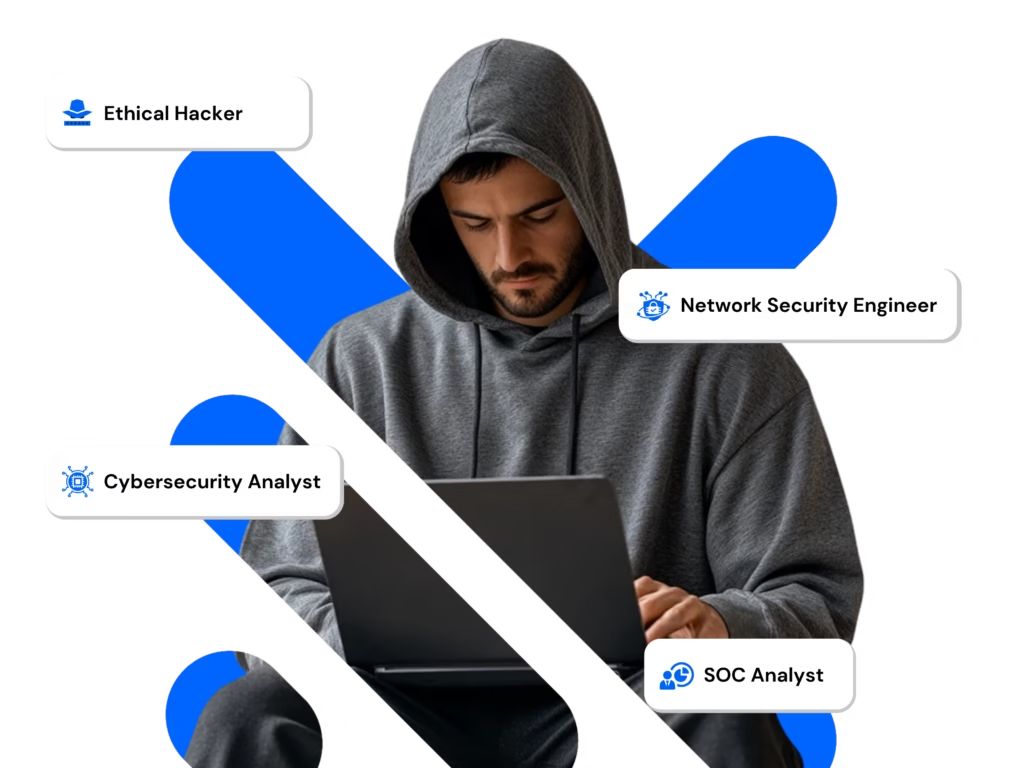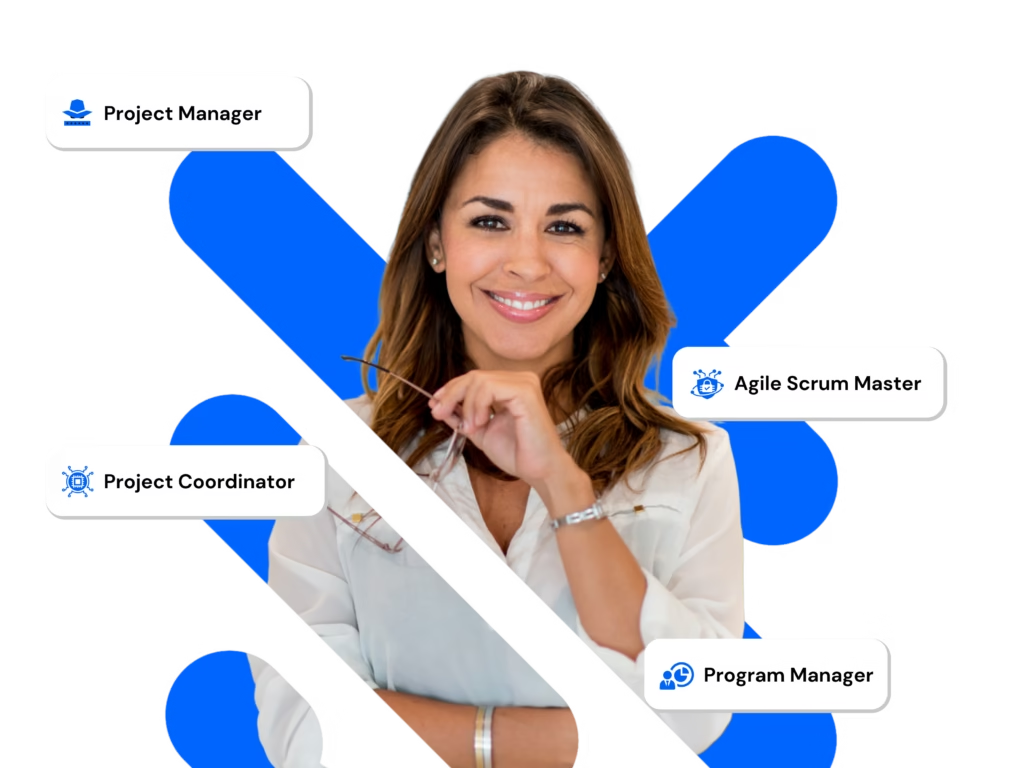Passing the Certified Jenkins Engineer (CJE) exam in 2024 requires a solid understanding of Jenkins fundamentals, hands-on automation experience, and advanced skills in configuring and optimizing Jenkins pipelines. To achieve the Certified Jenkins Engineer certification, candidates must master core concepts and develop practical problem-solving abilities essential for real-world scenarios. A strategic approach to preparation, including utilizing various study materials and practice tests, is crucial for success in the Jenkins certification exam.
This guide will explore key topics from the Certified Jenkins Engineer course, provide insights into effective preparation techniques, and offer strategies for maintaining certification while staying updated with Jenkins’ evolving features. Mastering these skills will equip candidates to excel in both the exam and their DevOps careers.
Table of Contents
Understanding the Certified Jenkins Engineer Exam
Overview of the Certification Exam
Here’s a table overview of the Certified Jenkins Engineer (CJE) Exam:
| Exam Component | Description |
|---|---|
| Jenkins Fundamentals | Installation, setup, and understanding Jenkins architecture. |
| Pipeline Creation & Management | Configuring and managing both declarative and scripted pipelines. |
| Jenkins Integration | Integrating Jenkins with various development and DevOps tools (e.g., Git, Docker). |
| Build Management | Setting up and managing builds across multiple environments and platforms. |
| Plugin Management | Installing and configuring essential Jenkins plugins for enhanced functionality. |
| Security | Implementing security best practices, user management, and role-based access control. |
| Troubleshooting & Optimization | Identifying, diagnosing, and resolving build failures and pipeline issues. |
| Distributed Builds | Configuring and managing Jenkins to run builds on multiple nodes. |
Exam Format and Duration
Here’s the information about the Certified Jenkins Engineer (CJE) Exam format:
| Exam Component | Details |
|---|---|
| Exam Format | Multiple-choice questions and hands-on tasks |
| Question Count | 60-90 questions |
| Duration | 90 minutes |
| Passing Score | 65-75% (varies) |
| Delivery Mode | Online, proctored |
Skills and Knowledge Areas Covered
Here’s a table outlining the Skills and Knowledge Areas covered in the Certified Jenkins Engineer (CJE) exam:
| Skill/Knowledge Area | Description |
|---|---|
| Jenkins Installation & Setup | Installing and configuring Jenkins on various platforms. |
| Jenkins Pipeline Creation | Creating and managing both declarative and scripted pipelines. |
| Build Automation | Automating builds and deployments using Jenkins pipelines. |
| Plugin Management | Installing, configuring, and managing essential Jenkins plugins. |
| Security Management | Implementing security practices like user roles, access control, and encryption. |
| Distributed Builds | Configuring Jenkins to manage builds across multiple nodes. |
| Integration with Tools | Integrating Jenkins with tools like Git, Docker, Maven, and other DevOps tools. |
| Troubleshooting & Optimization | Diagnosing and resolving build failures, optimizing CI/CD pipelines. |
| Monitoring & Reporting | Setting up automated reports and monitoring Jenkins job status. |
| DevOps Best Practices | Implementing CI/CD best practices for efficient and reliable software delivery. |
Preparing for the Exam: Study Materials and Resources
Recommended Study Guides and Books
To prepare for the Certified Jenkins Engineer (CJE) exam, a range of study guides and books can help build a strong foundation in Jenkins and DevOps practices. “Jenkins: The Definitive Guide” by John Ferguson Smart offers comprehensive coverage of Jenkins fundamentals and advanced features, making it a great resource for beginners and experienced users alike. “The DevOps Handbook” by Gene Kim, Jez Humble, Patrick Debois, and John Willis provides valuable insights into continuous integration and continuous delivery (CI/CD), both key areas for Jenkins usage.
For more hands-on guidance, “Jenkins 2: Up and Running” by Brent Laster is ideal for learning pipelines and job automation. “Continuous Delivery” by Jez Humble and David Farley dives deeper into automation and delivery, essential concepts for Jenkins mastery.
Beginners can also benefit from “Learning Continuous Integration with Jenkins” by Nikhil Pathania, which breaks down Jenkins’ key functions in an accessible way. For more targeted exam preparation, the Certified Jenkins Engineer (CJE) Exam Study Guide available online covers exam-specific topics, sample questions, and tips. Lastly, the Jenkins User Documentation is an excellent free resource that offers up-to-date information on Jenkins features, plugins, and configurations. These resources collectively provide everything needed to pass the CJE exam.
Mastering Jenkins Fundamentals and Best Practices
Understanding Continuous Integration and Continuous Deployment
Continuous Integration (CI) and Continuous Deployment (CD) are key concepts in modern software development, and understanding them is critical for passing the Certified Jenkins Engineer (CJE) exam.
- Continuous Integration (CI)
CI involves automating the process of integrating code changes from multiple developers into a shared repository. Each code change is automatically tested to ensure it doesn’t break the existing codebase. Jenkins plays a central role in CI by automating the process of building and testing code after every commit. This enables early detection of issues, improves code quality, and speeds up the development process.
- Continuous Deployment (CD)
CD extends CI by automating the release of tested code into production environments. After code passes all tests, Jenkins can automatically deploy it to production, ensuring fast and reliable software releases. This practice helps minimize manual intervention, reduces the risk of human error, and ensures that new features or updates reach users quickly.
Together, CI and CD form a crucial part of the DevOps pipeline, streamlining software development and deployment processes. Mastering these concepts is essential for anyone aiming to pass the Certified Jenkins Engineer certification exam.
Key Concepts in Jenkins Architecture
Understanding the key concepts in Jenkins architecture is essential for passing the Certified Jenkins Engineer (CJE) exam. Jenkins is built on a distributed architecture that enables efficient automation of software builds, testing, and deployments. Here are the core components:
1. Master-Slave Architecture
- Jenkins Master: The master node is the central controller in Jenkins. It handles scheduling build jobs, dispatching tasks to slave nodes, monitoring their status, and reporting results. It also provides the web UI and can execute builds if no slaves are configured.
- Jenkins Slave (Agent): Slaves are worker nodes that handle the actual execution of build jobs. They can be distributed across multiple machines to share the build load, improving performance and scalability.
2. Jobs and Pipelines
- Jenkins Jobs: These are individual tasks that Jenkins performs, such as building code or running tests. Jobs can be configured to trigger automatically when code changes occur in a repository.
- Jenkins Pipelines: Pipelines are automated workflows written in code (typically in Groovy) that define a series of steps Jenkins executes to complete a CI/CD process. Pipelines can be declarative or scripted, and they offer more flexibility than simple jobs.
3. Build Executor
- Each Jenkins node (master or slave) has a build executor that runs jobs. A node can have multiple executors, enabling it to handle several jobs concurrently.
4. Plugins
- Jenkins is highly extensible through plugins. Plugins provide added functionalities like integration with version control systems (Git, SVN), building tools (Maven, Gradle), containerization (Docker), and more. Effective plugin management is critical for customizing Jenkins to meet specific CI/CD needs.
5. Workspaces
- A workspace is a directory on a node where Jenkins checks out the code, compiles, and tests it during a build. Each job has its own workspace, ensuring that builds are isolated from each other.
6. Build Triggers
- Jenkins supports several ways to trigger jobs, such as through SCM polling, webhooks (e.g., GitHub), scheduled cron-like jobs, or manually triggered builds.
7. Security and User Management
- Jenkins offers robust security features, including user roles, matrix-based access control, LDAP integration, and credential management to protect sensitive information and control user permissions.
Advanced Topics in Jenkins Configuration and Optimization
Optimizing Jenkins Performance
Optimizing Jenkins performance is essential for ensuring smooth and efficient CI/CD pipelines, especially in large-scale projects. One key strategy is to distribute builds using a master-slave architecture, where build execution is offloaded to slave nodes, reducing the load on the master and allowing for parallel job execution. Limiting the number of executors on the master node also helps maintain its performance by preventing overload. Simplifying Jenkins jobs and pipelines, particularly by using declarative pipelines, can streamline processes and make them more manageable. Managing plugins efficiently is critical; only essential plugins should be installed, and keeping them up to date ensures better performance and security.
Another important aspect of optimization is disk configuration. Storing Jenkins workspaces, builds, and home directory on fast local storage, such as SSDs, significantly reduces I/O wait times. Additionally, proper resource allocation, like setting memory limits for builds and configuring JVM heap sizes, prevents resource exhaustion. Cleaning up old builds regularly by enabling build discard helps conserve disk space and speeds up Jenkins operations.
To further optimize performance, utilizing caching mechanisms for build tools (such as Maven or Gradle) minimizes repetitive downloads of dependencies. Externalizing build environments by using Docker or dedicated build tools also reduces Jenkins’ overhead. Monitoring performance is crucial; tools like the Jenkins Monitoring Plugin or Prometheus can track system health, CPU, and memory usage, helping identify bottlenecks. Finally, securing Jenkins through role-based access control and external credential management enhances both performance and security, ensuring that Jenkins operates efficiently even in complex, high-demand environments.
Security Best Practices in Jenkins
To enhance security in Jenkins, several key best practices should be implemented, especially for those pursuing the Certified Jenkins Engineer certification. First, enabling Role-Based Access Control (RBAC) ensures that user permissions are restricted based on their roles, reducing the risk of unauthorized access. It’s also crucial to secure Jenkins with SSL by using HTTPS, which encrypts data transmitted between users and the server. Regularly updating Jenkins and its plugins helps patch known vulnerabilities, further strengthening security.
Integrating external authentication systems like LDAP or OAuth adds an additional layer of protection, a critical aspect for candidates preparing for the Jenkins certification exam. Sensitive information should be managed securely using the Jenkins Credentials Plugin, with all data encrypted to prevent exposure. Enforcing strong password policies that require complexity and regular expiration helps protect against brute force attacks.
Additionally, limiting the use of plugins to only those that are necessary minimizes potential vulnerabilities, and conducting regular audits of installed plugins is essential. Running Jenkins jobs in isolated environments, such as Docker containers, can further mitigate security risks. Enabling audit logging allows for the tracking of user activities, making it easier to identify suspicious behavior.
Finally, having robust backup and disaster recovery plans ensures that Jenkins configurations and job data are regularly backed up, allowing for quick recovery in the event of a breach. By adhering to these best practices, especially as outlined in the Certified Jenkins Engineer course, organizations can significantly enhance the security of their Jenkins environment while preparing for the certified Jenkins engineer certification.
Strategies for Exam Success: Practice Tests and Time Management
Importance of Practice Tests
Practice tests are an essential component of preparing for the Certified Jenkins Engineer (CJE) exam. They serve as a valuable tool to familiarize candidates with the exam format, types of questions, and the overall pacing required to succeed. By simulating the testing environment, practice tests help reduce anxiety and build confidence, allowing candidates to approach the actual exam with a clearer mindset.
Moreover, these tests highlight areas of strength and weakness, enabling candidates to focus their study efforts more effectively. For example, if a practice test reveals difficulties in understanding Jenkins pipeline syntax, candidates can prioritize studying that topic to enhance their knowledge. This targeted approach leads to a more efficient study process, maximizing the use of time leading up to the exam.
Additionally, practice tests encourage active learning by reinforcing concepts through repetition. They help solidify understanding and retention of critical information, making it easier to recall details during the actual certification exam. With many practice tests available online, including those specifically tailored for the Jenkins certification exam, candidates can access a wealth of resources to enhance their preparation.
Finally, completing multiple practice tests can also improve time management skills, teaching candidates how to allocate their time effectively across different sections of the exam. This is particularly important, as the certified Jenkins engineer certification requires not only knowledge but also the ability to apply that knowledge under timed conditions. In summary, practice tests are invaluable for anyone preparing for the CJE exam, providing insight, reinforcing learning, and ultimately increasing the likelihood of success.
Tips for Exam Day Preparation
Here’s a concise table with advanced tips related to preparing for the Certified Jenkins Engineer (CJE) exam:
| Tip | Description |
|---|---|
| Understand Exam Objectives | Familiarize yourself with the exam topics to focus your studies effectively. |
| Utilize Hands-On Labs | Engage in practical labs to enhance your understanding of Jenkins. |
| Join Study Groups | Collaborate with peers for discussions and quizzes on key concepts. |
| Review Case Studies | Analyze real-world scenarios to see Jenkins applications. |
| Simulate Exam Conditions | Take timed practice exams to manage pressure and time effectively. |
| Focus on Troubleshooting Skills | Practice common Jenkins issues to strengthen your problem-solving abilities. |
| Explore Community Resources | Participate in forums and groups to stay updated on best practices and changes. |
| Stay Updated on Releases | Keep track of the latest Jenkins features and updates for better exam preparedness. |
| Seek Mentorship | Find a mentor for insights and tips from their experience. |
| Reflect on Past Experiences | Use your prior Jenkins experience to inform your study and preparation strategies. |
Troubleshooting Common Jenkins Issues
Identifying and Resolving Build Failures
Identifying and resolving build failures in Jenkins is a critical component of maintaining an efficient CI/CD pipeline, especially for those pursuing a Certified Jenkins Engineer certification. Common causes of build failures include code errors, dependency issues, and configuration problems. To effectively troubleshoot, it is essential to analyze build logs, as error messages and warnings can provide valuable insights into what went wrong. Reproducing the failure locally can also be helpful, allowing developers to better understand the problem and test potential solutions. It’s important to check that all dependencies are correctly installed and compatible with the build environment.
Additionally, reviewing Jenkins job configurations and pipeline scripts for misconfigurations or syntax errors can prevent issues before they arise, which is a vital aspect of the Certified Jenkins Engineer course. Ensuring that the correct version of the code is being built and verifying there are no conflicts in the repository are also crucial steps in the process. Leveraging relevant Jenkins plugins can aid in diagnosing and managing build failures, while implementing retry logic within the pipeline can help address transient issues.
Monitoring environment variables is crucial to ensure they are correctly set and accessible during the build process. After resolving a build failure, analyzing the root cause and making necessary improvements can prevent similar occurrences in the future, ultimately enhancing your preparation for the Jenkins certification exam and contributing to your success in achieving the Certified Jenkins Engineer certification.
Explore More:- Is the Docker Certified Associate (DCA) Certification Worth It?
FAQ:-
Can I take the Certified Jenkins Engineer exam online or do I need to go to a testing center?
The Certified Jenkins Engineer exam can be taken online, allowing you to complete it from the comfort of your home or office. This option provides flexibility in scheduling and convenience without the need to visit a testing center.
How long does it typically take to prepare for the Certified Jenkins Engineer exam?
Preparation for the Certified Jenkins Engineer exam usually takes around 4 to 8 weeks, depending on your prior knowledge of Jenkins and CI/CD practices. A structured study plan, hands-on practice, and familiarity with key concepts can help you efficiently prepare for the exam.
Are there any prerequisites for taking the Certified Jenkins Engineer exam?
There are no formal prerequisites for the Certified Jenkins Engineer exam; however, it is recommended that candidates have a solid understanding of Jenkins, CI/CD concepts, and practical experience using Jenkins in real-world scenarios to increase their chances of success.
Is the Certified Jenkins Engineer certification valid indefinitely, or does it expire after a certain period?
The Certified Jenkins Engineer certification does not expire, meaning once you obtain it, it remains valid indefinitely. However, it is advisable to stay updated with the latest Jenkins features and best practices to maintain your proficiency in the field.





